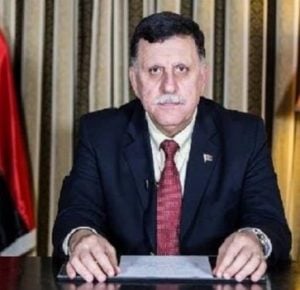By Libya Herald reporter.

Tunis, 21 July 2017:
Three weeks after it first appeared, Presidency Council head Faiez Serraj has condemned the fatwa against Ibadi Muslims issued by the Awqaf (endowments) and Islamic affairs authority that is part of the Beida-based interim government.
The fatwa called Ibadis infidels and “Kharjites”.
Serraj described the edict as insulting and an incitement to hatred, warning that it risked inflaming tensions. “Islam is a religion of love, brotherhood and tolerance,” Serraj said. The country should display compassion and unity, he added.
Ibadi Islam is followed by a large number of Libyan Amazigh; according to the Libyan Tamzight Congress, there are between 300,000 to 400,000 Ibadis in the country.
The eastern fatwa has been met with a tidal wave of anger. The Amazigh Supreme Council has accused those who issued it of inciting genocide and the Awqaf office in Zuwara, where most of the residents are Amazigh, has castigated it as an instrument aimed at creating division and violence.
Some 200 Libyan academics, journalists, activists and politicians have also attacked it in a joint statement, saying there was a real risk of inflaming sectarian violence. They compared the Salafist-controlled Awqaf office in Beida to the “terrorist groups” that had prevented elections being held in Derna three years ago. The fatwa posed a threat to peace in Libya, they said.
Others have joined the attack. Libya’s Human Rights Commission has called the edict a blatant attack on the country’s unity.
Among others scorning it has been Tebu politican Senussi Hamid who is a member of the Constitution Drafting Assembly. He described it as a symptom of Libya’s identity crisis and called on the authorities to protect cultures and minorities.
The New York-based Human Rights Watch has now added its voice to the condemnation, demanding that the interim government led by Abdullah Al-Thinni “repudiate this dangerous edict and affirm that all faiths and sects deserve tolerance and equal protection”.
So far, the Beida government said nothing about the fatwa. Nor has the House of Representatives or the Libyan National Army.








